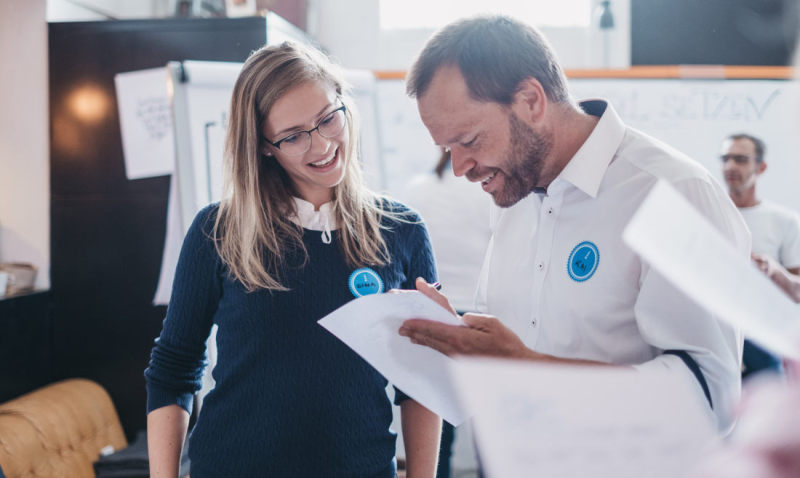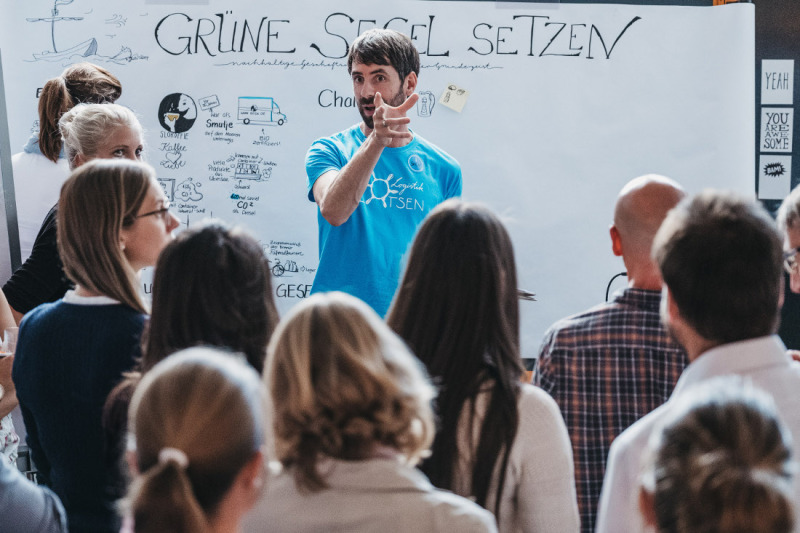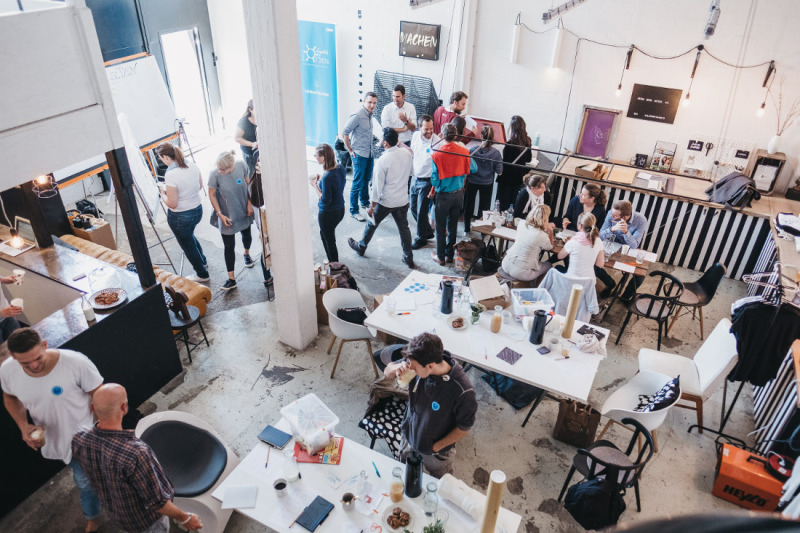Changing the world through logistics
Maritime economy and logisticsSocially responsible, sustainable and green: Bremen-based LogistikLotsen hopes to turn north Germany into the social entrepreneurship hub for logistics

Germany’s north-west is set to become the centre for environmentally and socially responsible entrepreneurship in logistics. To achieve this, a new platform for events and a network for the sector are in development, with the aim of promoting new partnerships and business start-ups in logistics.
Logistics is the lifeblood of commerce, and without it everything grinds to a halt – literally. It is heavily influenced by trends and developments such as digitalisation, labour market policies and a changing demographic. Environmentally compatible practices and corporate social responsibility (CSR) are also becoming increasingly important.
Benefits of social responsibility in logistics
“Many logistics providers have plenty of scope for change in this area, and are open to new ideas,” Dr Sven Hermann explains. “Acting in an environmentally and socially responsible way has numerous advantages for businesses. They can reduce their energy consumption and therefore their costs, for example,” he adds. “They can position themselves as an attractive, responsible employer, or establish new business models that increase their competitiveness.”
Hermann is the founder of LogistikLotsen, a collaboration platform for regional universities, companies and institutions working in Bremen’s maritime commerce and logistics sector. Alongside promoting digitalisation in logistics, the platform now also focuses on social entrepreneurship. You can find out more about LogistikLotsen and its ambitions for Bremen and the north of Germany in our article “Launch of LogistikLotsen facilitates collaboration and innovation between science and business” (in German).
Sustainable logistics: transporting coffee to Bremen on a sailing boat
For an example of what sustainable practices and entrepreneurship might look like, look no further than Slokoffie. What makes this new brand of coffee different is that environmentally friendly transport is used to bring it to Bremen. In the summer of 2017, 300 sacks of coffee made their way by sailing boat from Honduras to Bremen – virtually carbon-neutral. The eco-friendly coffee is now being sold from Bremen.
Achieving more together
Slokoffie is just one example of the increasing number of socially responsible and green initiatives in logistics. But so far, there has been very little networking between them, and opportunities are going to waste. That is all set to change with LogistikLotsen, which is aiming to establish a regional hub for social entrepreneurship that will be known across Germany. “As an established logistics hub, the region of north-west Germany is the ideal location,” Hermann says.
The initiative aims to kick-start the creation of a carbon-efficient sector, incorporating sustainable urban logistics, resource-efficient delivery and waste management chains, and social business models that can train the skilled workers required for digital transformation.

Opportunities and dangers of automation in logistics
Digitalisation is an important buzzword. Besides providing opportunities for more sustainable practices through digital efficiency gains, digitalisation is also causing tension in the workplace. Automation, 3D printing and robots are likely to replace many existing jobs in the labour-intensive logistics sector. Businesses have to retrain their workforce in good time and offer their employees opportunities – just one of the areas that CSR initiatives can address. This will allow logistics to retain its skilled workers.
A regional network is developing
To achieve its ambitions, LogistikLotsen is working with a number of dedicated, regional initiatives and companies. These include the German Foreign Trade and Commerce Academy (DAV), the MARWILO training and education project, Jacobs University’s logistics chain club and Hilfswerft. “New innovation methods, green logistics and entrepreneurship are important topics for our students, and we aim to drive these areas forward,” says Thomas Zink, Director of Studies at the German Foreign Trade and Commerce Academy.
The objective is to encourage young people to start their own businesses: “Entrepreneurship is an important solution to the challenges of sustainability and social responsibility in logistics. Together with LogistikLotsen, we aim to raise awareness of this important business sector and develop entrepreneurial skills,” says Janine Schröder from the Bremen office of Hilfswerft, a management consultancy that helps organisations to deliver social responsibility projects.

Using creativity to find new ways of changing the world
The initiative hopes to one day encourage companies and entrepreneurs across Germany to commit to green and socially responsible practices. “We want to create an innovations hub in north-west Germany for socially responsible and sustainable logistics,” says Hermann. Until then, participants meet in regular workshops to develop new ideas and to refine their vision. Following the initial kick-off workshops in July 2017, further social entrepreneurship events are already lined up. In November 2017, for example, the topics of mobility and zero waste will be discussed in Berlin.
“Using creative methods such as design thinking and graphic recording to formulate sustainable business ideas is an entirely different approach to that used in universities – and it’s a great alternative,” says Sina Arndt, student spokesperson of the Weser/Ems regional group of the German Logistics Association (BVL).
Besides coming up with new ideas, the initiative is also expanding its network of organisations and companies. Anyone interested in green logistics can contact LogistikLotsen:
LogistikLotsen für die Metropolregion Nordwest e.V.
Prof. Dr. Sven Hermann, hermann@logistiklotsen.de
Konsul-Smidt-Straße 8r, 28217 Bremen
www.logistiklotsen.de
Success Stories
10 Leading Coffee Companies from Bremen
From trading to roasting to logistics – no one does coffee quite like Bremen. But who are the players driving the business in Germany’s coffee capital? Meet ten of them.
Learn moreBremen’s Economy in Figures: Statistics 2025
The State of Bremen is a strong economic hub. A look at the latest statistics highlights its economic strength — summarising key data such as cargo volumes, export performance, industry turnover, and more.
Learn moreMedium-Sized Companies in Bremen Showcasing the Full Range of the Local Economy
Medium-sized companies form the backbone of Bremen’s economy. They create jobs and produce goods that are in demand worldwide. Here is a selection of ten businesses that illustrate the diversity of Bremen’s economic landscape.
Learn more
